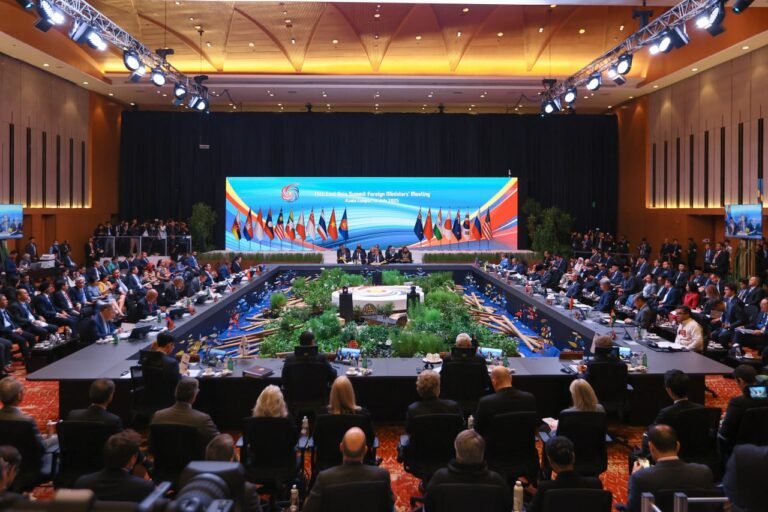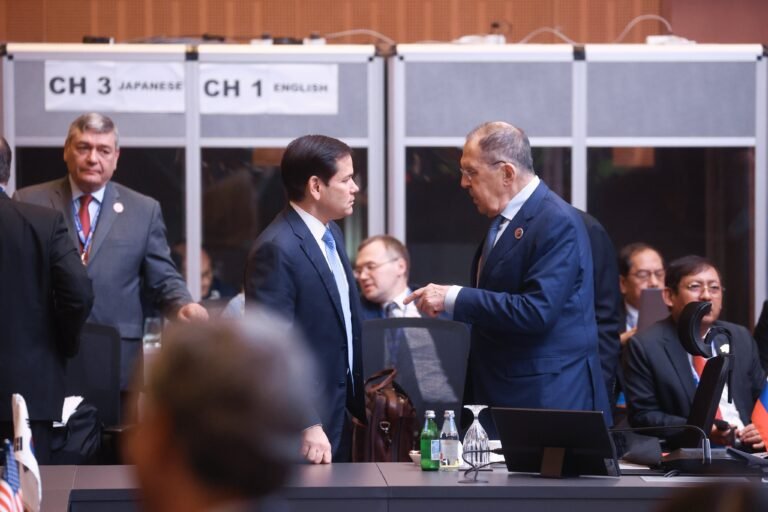Online shopping giant Temu is giving up substantial control of its Chinese supply chain in the face of President Donald Trump’s new tariffs, a move that threatens to drive up prices on the budget shopping app.
The platform is accelerating a shift away from its original model where sellers leave everything — price-setting, shipping and marketing included — to Temu. Instead, the company now wants factories to ship their own wares in bulk to American warehouses, adopting what it calls a “half-custody” framework where it only manages the online marketplace, people familiar with the matter said.
While shifting over to “half-custody” has not been made mandatory yet, Temu has signaled to merchants that it will prioritize sellers who sign onto the new framework, the people said, asking not to be identified discussing private conversations. The company plans to ultimately move its entire US operation to the new model, another person said.
The shift threatens to inflate prices on the PDD Holdings Inc.-owned marketplace as merchants lose the economies of scale in shipping and handling that Temu provides while having to compensate for higher delivery costs that Trump’s punitive measures will add. With this move, Temu is also distancing itself from the model pioneered by Amazon.com Inc., whose control of its logistics and delivery network underpins a 38% market share of online spending in the US.
China’s e-commerce firms including PDD could incur more costs in the first half, resulting in lower profits and steeper losses overseas, even after Trump delayed removal of the duty-free exemption for small parcels, Bloomberg Intelligence analysts Catherine Lim and Trini Tan said in a note earlier this week. PDD “will likely incur upfront costs to facilitate changes to Temu’s business model” to counter the threat from less favorable policy changes on their operations.
While Temu’s “half-custody” model was introduced early last year, efforts to push vendors into that framework have accelerated after Trump came to power, the people said. The change may also result in fewer Chinese suppliers selling on the platform, as smaller merchants unable to command favorable shipping rates or devote resources to managing logistics shift out of the US marketplace.
Representatives for Temu did not immediately respond to requests for comment.
Temu and rival Shein, both China-founded business that exploded off American consumers’ demand for cheap goods, are bracing for the end of duty-free exemption on small parcels. While implementation has been delayed indefinitely, the inevitable loss of the “de minimis” rule for goods coming from China will affect the bulk of what these companies sell in US.
Shein is also moving to mitigate the impact of the new US measures. To preserve its ability to deliver duty-free small parcels, Shein is asking some Chinese suppliers to set up new production capacity in Vietnam with incentives like up to 30 percent higher procurement pricing, Bloomberg reported on Monday.
As companies accelerate deliveries of China-exported products to overseas clients to avoid tariff increases and adjust to geopolitical changes, they are finding it “very hard to book” cargo ships now, Zhao Haijun, co-CEO of Semiconductor Manufacturing International Corp., said during an earnings call this week.
“When’s the inflection point? I think we need to wait till the mid-year when policies are all announced,” said Zhao, commenting on the demand trajectory in semiconductors industry.
Last year, companies such as Shein and Temu shipped $46 billion worth of small parcels to the US to take advantage of the rule that allows items with a declared value under $800 to enter the US tariff-free, according to Nomura Holdings Inc.’s estimates.







